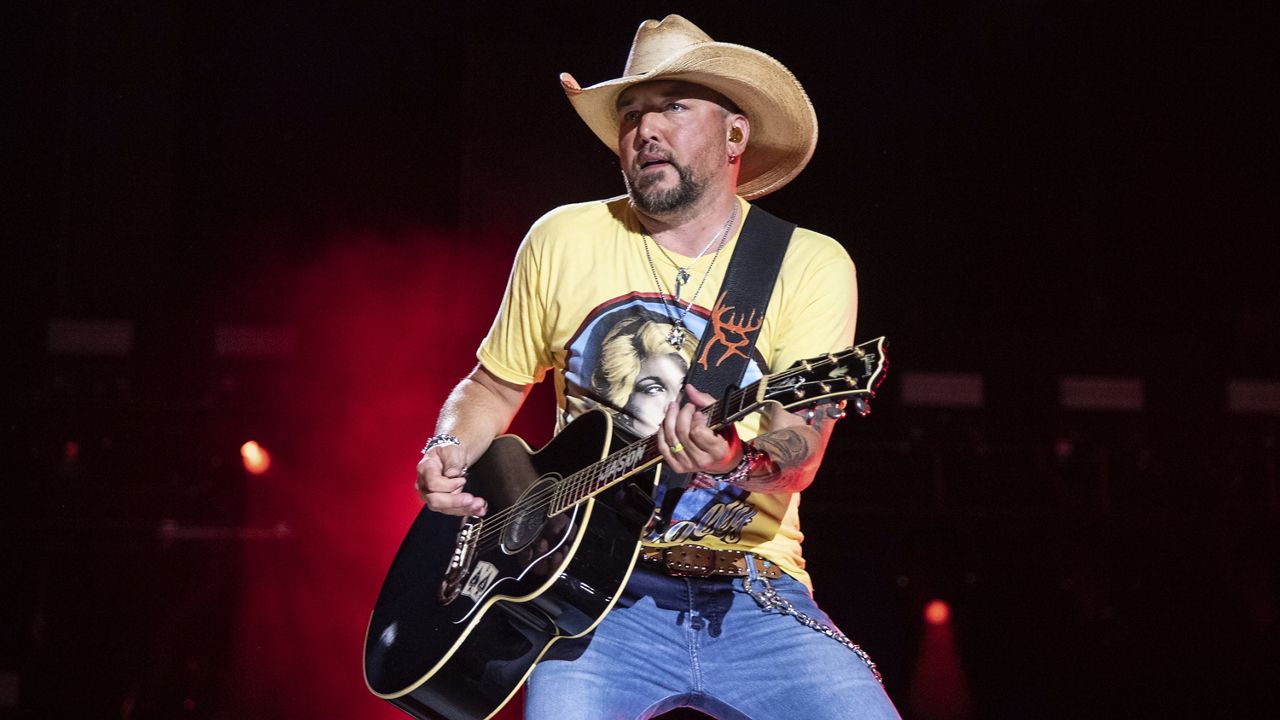Country music star Jason Aldean 's latest music video for "Try That In A Small Town," lasted just one weekend on Country Music Television before the network pulled it in response to an outcry over its setting and lyrics.
What You Need To Know
- Country music star Jason Aldean has released a controversial music video for his latest single, "Try That In A Small Town"
- Country Music Television removed it Monday from rotation, three days after its release
- In it, Aldean performs in front of the courthouse in Columbia, Tennessee, where the Columbia race riot erupted in 1946 and the site of the 1927 lynching of an 18-year-old Black teenager named Henry Choate
- Aldean said on Twitter Tuesday that the song is not about race
In the video, Aldean — who has been awarded country music artist of the decade by the Academy of Country Music — performs in front of the Maury County Courthouse in Columbia, Tennessee. This is the site of the 1946 Columbia race riot and the 1927 mob lynching of an 18-year-old Black teenager named Henry Choate.
Aldean's video, which was released last Friday, has received fervent criticism online, with some claiming the visual is a "dog whistle" and others labeling it "pro-lynching."
Interspersed between performance footage of Aldean are news clips of violent riots and flag burning. A Fox News chyron reads: "State of emergency declared in Georgia."
"Cuss out a cop, spit in his face / Stomp on the flag and light it up / Yeah, ya think you're tough," Aldean, who is from Macon, Georgia, sings. "Got a gun that my granddad gave me / They say one day they're gonna round up / Well, that shit might fly in the city, good luck / Try that in a small town."
"There is not a single lyric in the song that references race or points to it- and there isn't a single video clip that isn't real news footage -and while I can try and respect others to have their own interpretation of a song with music- this one goes too far," Aldean wrote in a tweet posted Tuesday.
The production company behind the video, Tacklebox, said in a statement Wednesday that it picked a "popular filming location outside of Nashville" that had been used on numerous productions, including holiday films starring Tanya Tucker and one starring Mario Lopez and Jana Kramer.
"Any alternative narrative suggesting the music video's location decision is false," the company said, adding that Aldean did not choose the location.
Aldean has long identified as conservative, and has been a vocal supporter of former President Donald Trump. "My political views have never been something I've hidden from," he tweeted Tuesday.
The video and its subsequent removal from CMT quickly blew up into one of the periodic culture war clashes, with several conservative figures speaking out in favor of Aldean — including Arkansas Gov. Sarah Huckabee Sanders, South Dakota Gov. Kristi Noem and Colorado Republican Rep. Lauren Boebert.
This isn't the first time Aldean has been at the center of controversy. In 2015, he made headlines for dressing as rapper Lil Wayne as a Halloween costume, wearing blackface makeup and a wig with dreadlocks.
In 2017, the country singer was on stage at the Route 91 Festival in Las Vegas during the worst mass shooting in modern U.S. history. Over the years, Aldean has given conflicting statements about his stance on U.S. gun laws, though his music celebrates gun ownership.
"It's too easy to get guns, first and foremost," he told The Associated Press after the Las Vegas shooting. "When you can walk in somewhere and you can get one in 5 minutes, do a background check that takes 5 minutes, like how in-depth is that background check? Those are the issues I have. It's not necessarily the guns themselves or that I don't think people should have guns. I have a lot of them."
"In the past 24 hours I have been accused of releasing a pro-lynching song (a song that has been out since May) and was subject to the comparison that I (direct quote) was not too pleased with the nationwide BLM protests," Aldean said on Twitter Tuesday. "These references are not only meritless, but dangerous."
A CMT spokesperson did not immediately respond to AP's request for comment.








